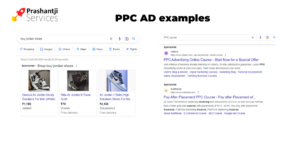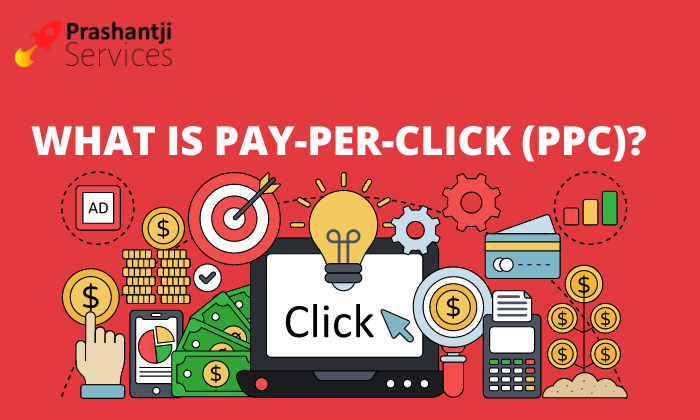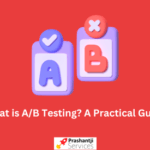What Is PPC Advertising?
PPC (Pay-per-click) advertising is a type of online advertising where advertisers pay each time a user clicks on one of their ads. These ads can appear on search engine results pages (SERPs), social media platforms, or other websites, and are typically marked as “sponsored” or “ad.”
In PPC advertising, advertisers bid on keywords relevant to their business or target audience. When a user searches for a keyword or phrase, the search engine displays the relevant ads based on the bid amount and the ad’s quality score, which is determined by factors like relevance and user experience. Advertisers only pay when a user clicks on their ad, hence the name “pay-per-click.”

PPC advertising is popular because it offers a high level of control and flexibility over ad campaigns. Advertisers can set a daily budget, adjust bids for specific keywords, and target specific geographic locations or demographics. This makes it easier to measure the ROI of an ad campaign and optimize it for better results.
How does PPC advertising work?
PPC advertising can look a little different from platform to platform, but the general process is as follows:
- Choose the campaign type that best suits your objective.
- Adjust your settings and targeting (audiences, devices, locations, schedule, etc.) to suit your needs.
- Provide your budget and bidding strategy.
- Enter the URL of your website or landing page.
- Build your advertisement.
Once your ad goes live, where and when it appears are determined algorithmically based on your budget, bid, campaign settings, and the quality and relevance of your ad.
In order to maintain a high level of customer satisfaction, platforms that offer pay-per-click advertising reward advertisers with favorable ad positioning and lower costs for creating relevant, trustworthy campaigns.
How to do effective PPC keyword research
Effective PPC keyword research is essential for running successful PPC campaigns. Here are some steps to follow when conducting PPC keyword research:
- Understand your target audience: Before you start researching keywords, it’s important to have a good understanding of your target audience. Who are your ideal customers? What are their pain points? What are they searching for online? This information will help you choose keywords that are relevant to your audience.
- Brainstorm keyword ideas: Start by brainstorming a list of potential keywords. Think about the products or services you offer, as well as any synonyms or related terms that might be relevant. You can also use tools like Google’s Keyword Planner, Ubersuggest, or SEMrush to generate keyword ideas.
- Analyze your competition: Look at the keywords your competitors are targeting in their PPC campaigns. This can give you ideas for keywords you may have missed, as well as help you identify gaps in the market.
- Use long-tail keywords: Long-tail keywords are more specific phrases that are less competitive than broader keywords. They may have a lower search volume, but they can be more targeted and lead to higher conversions.
- Consider match types: When choosing keywords, consider using different match types, such as broad match, phrase match, or an exact match. This can help you control the relevancy of your ads and reach your target audience more effectively.
- Refine your list: Once you have a list of potential keywords, refine it by eliminating any that are too broad or not relevant enough. Focus on keywords that are highly relevant to your business and have a good balance of search volume and competition.
- Monitor and adjust: PPC keyword research is an ongoing process. Monitor the performance of your campaigns and adjust your keywords as needed to improve their effectiveness.
By following these steps, you can conduct effective PPC keyword research that will help you reach your target audience and drive conversions for your business.
How to Optimize Your Pay-Per-Click Ads
Optimizing your pay-per-click (PPC) ads is essential for getting the best results from your PPC campaigns. Here are some tips for optimizing your PPC ads:
- Use targeted keywords: Use targeted keywords that are relevant to your business and your target audience. This will help ensure that your ads are displayed to the right people.
- Write compelling ad copy: Write ad copy that is compelling, relevant, and engaging. Your ad copy should clearly communicate the benefits of your product or service and include a strong call to action.
- Test different ad variations: Test different variations of your ads to see which ones perform best. Try different headlines, descriptions, and calls to action to see what resonates most with your audience.
- Use ad extensions: Ad extensions can help improve the visibility and effectiveness of your ads. Consider using extensions like site links, callouts, and structured snippets to provide additional information and increase click-through rates.
- Optimize landing pages: Ensure that the landing pages you are directing users to are relevant, informative, and optimized for conversions. Your landing pages should have clear calls to action and be designed to encourage users to take the desired action.
- Monitor and adjust: Monitor the performance of your ads regularly and make adjustments as needed. Use analytics tools to track key metrics like click-through rates, conversion rates, and cost per click, and adjust your ads and targeting to improve performance.
By following these tips, you can optimize your PPC ads to improve their effectiveness and drive more conversions for your business.








